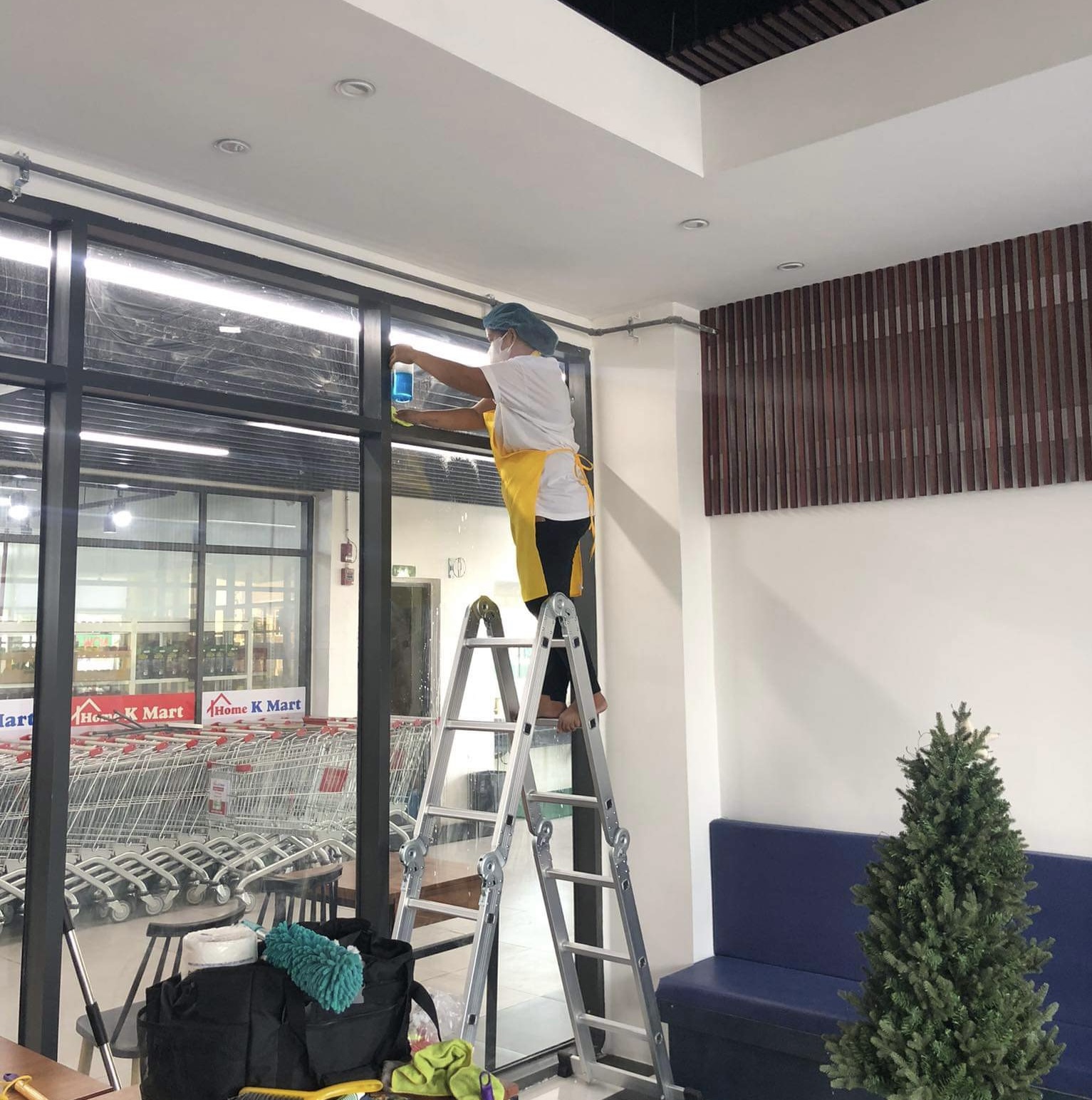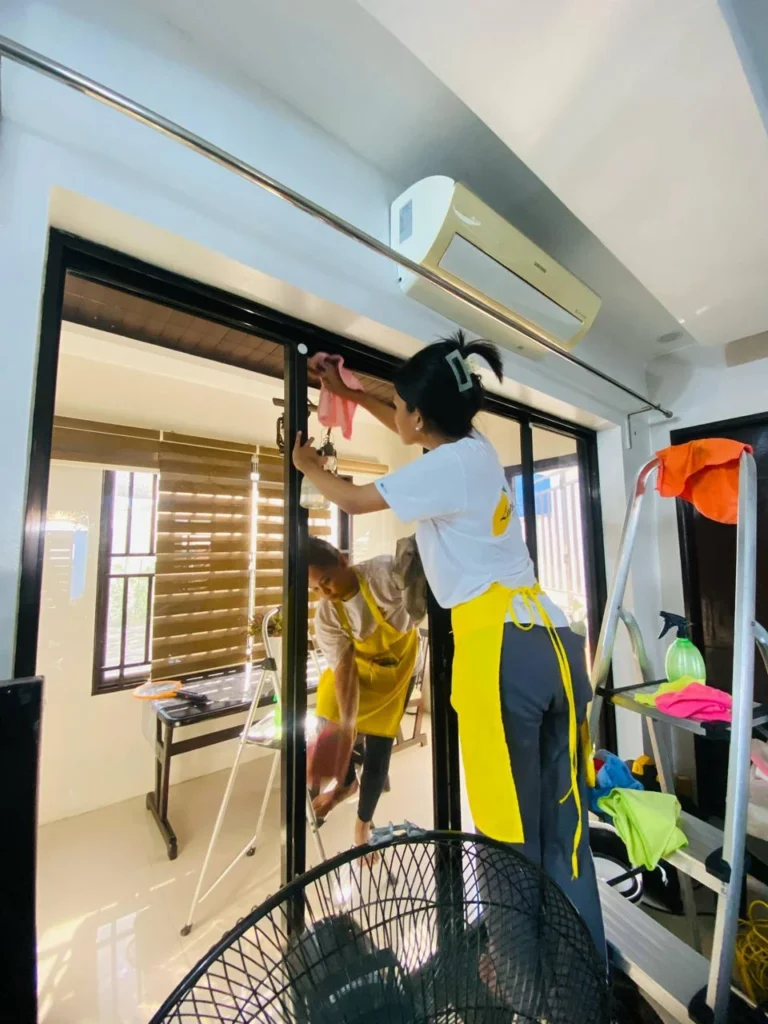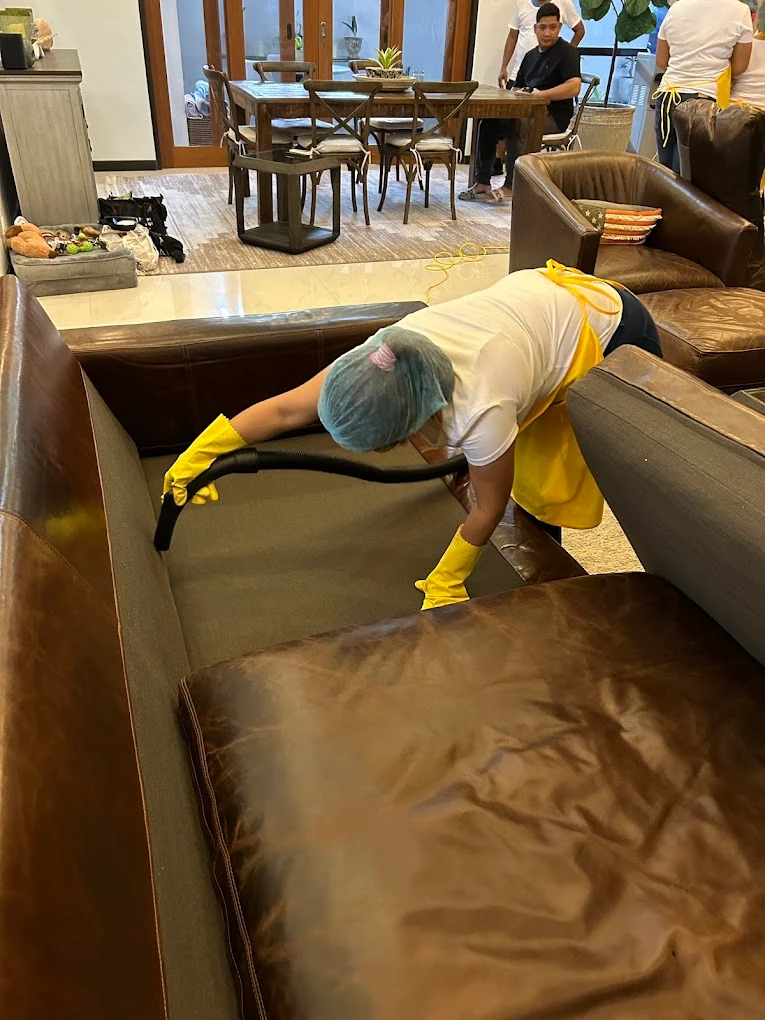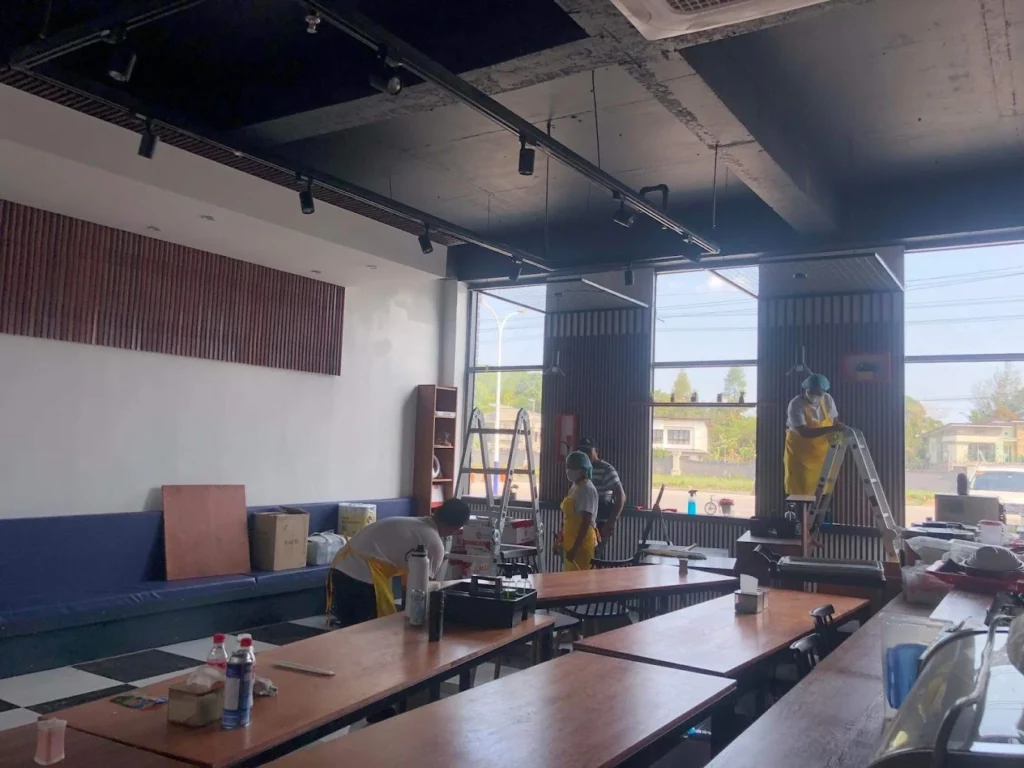Maintaining indoor cleanliness is a common aspect of daily life in many homes, offices, and commercial spaces in the Philippines—especially in cities like Angeles, San Fernando, and nearby towns in Pampanga. However, while regular cleaning focuses on surface-level maintenance, deep cleaning involves a more comprehensive approach. It targets hidden grime, allergens, and areas often missed during routine tidying.
This blog discusses what deep cleaning entails, why it matters, and how it fits into the lifestyle and environmental conditions of households and businesses in Angeles City and neighboring areas. It also explores how it complements health, hygiene, and preventive upkeep based on guidelines from local institutions.
Understanding Deep Cleaning in the Philippines
In the Philippine setting, where weather conditions include high humidity, monsoon rains, and intense heat, dirt, moisture, and airborne particles tend to accumulate indoors. Deep cleaning refers to a meticulous cleaning process that goes beyond basic tasks like sweeping or dusting. It often includes areas and surfaces that are frequently overlooked, such as under heavy furniture, behind appliances, bathroom tile grout, light fixtures, and vents.
The Department of Health (DOH) provides guidance on cleaning practices in both residential and institutional settings. These practices emphasize the importance of detailed disinfection, especially in shared or high-touch areas. Deep cleaning typically involves techniques such as scrubbing, sanitizing, vacuuming upholstery, cleaning hard-to-reach spaces, and removing buildup that may harbor bacteria or allergens.
Why Deep Cleaning is Relevant in Pampanga Homes and Workplaces
Many homes and businesses in Angeles City, Clark Freeport Zone, and nearby areas experience various environmental factors that contribute to dirt and grime accumulation. Dust from road activity, ashfall from volcanic activity, and smoke from transportation or grilling (common in outdoor Filipino kitchens) can settle on walls, floors, and furniture.
In commercial environments—such as restaurants in Balibago or clinics in Nepo Center—maintaining a hygienic environment requires more than regular wiping. Food preparation areas, bathrooms, and waiting rooms benefit from periodic deep cleaning to manage invisible contaminants.
This is especially important given Pampanga’s tropical climate, which encourages mold and mildew growth in moist areas like bathrooms, kitchens, and laundry spaces. Deep cleaning supports ongoing maintenance by addressing those risks.
Scope of Deep Cleaning Tasks
Deep cleaning routines vary depending on the structure and use of a property. In most homes in subdivisions like Marquee Place or Timog Residences, deep cleaning includes:
- Moving furniture to clean underneath and behind
- Vacuuming and washing curtains, carpets, and upholstery
- Scrubbing tile grout and disinfecting bathroom fixtures
- Degreasing kitchen surfaces, including range hoods and exhaust fans
- Dusting lighting fixtures, baseboards, and ceiling fans
- Cleaning inside cabinets, drawers, and storage areas
- Washing or sanitizing air-conditioning filters and vents
In commercial spaces, tasks may also include cleaning air ducts, floor waxing, deep carpet shampooing, and disinfecting high-contact areas like door handles and handrails. Businesses in Clark Techno Park and Angeles City’s business districts often employ deep cleaning to align with health safety regulations.
Differences Between Regular and Deep Cleaning
Daily or weekly cleaning tasks such as sweeping, wiping, or organizing are essential for maintaining a clean-looking environment. However, these routines focus on visible surfaces and commonly used areas. Over time, dirt accumulates in neglected spaces, and deep cleaning addresses those long-ignored spots.
For example, while mopping may clean the surface of a tile floor, deep cleaning removes stains from grout lines. Similarly, wiping a countertop may remove crumbs, but deep cleaning involves disinfecting crevices where bacteria can thrive. This level of attention is particularly valuable in households with small children, elderly family members, or individuals with allergies.
The Department of Science and Technology – FNRI highlights the significance of environmental cleanliness as a factor in public health, especially in confined spaces where family members spend extended periods indoors.
Indoor Air Quality and Allergen Reduction
Residents of Angeles City and its nearby communities are often exposed to environmental particles like dust, pollen, and mold spores—especially during dry seasons or near construction zones. Poor air circulation in enclosed spaces can trap these particles indoors.
Soft furnishings like curtains, beds, sofas, and carpets can harbor these particles. Deep cleaning includes vacuuming and washing these materials to reduce dust mites and allergens. Additionally, filters in split-type air conditioning units or ceiling fans are cleaned to prevent the recirculation of dust.
Organizations like the Philippine College of Chest Physicians have recognized the health implications of poor indoor air, especially for individuals with respiratory conditions. Periodic deep cleaning contributes to better indoor air management, particularly in urbanized communities where ventilation is limited.
Hygiene in Food Preparation and Bathroom Areas
The kitchen and bathroom are among the most used and moisture-prone areas in both homes and businesses. Cooking in Filipino households often involves frying and sautéing, leading to oil particles clinging to walls, exhaust fans, and kitchen equipment. Soap scum, limescale, and mildew can accumulate in bathroom tiles and fixtures.
Deep cleaning addresses these residues with methods that include degreasing, disinfecting, and descaling. These practices help manage microbial buildup and improve cleanliness in environments where sanitation is critical.
The Philippine FDA outlines procedures for cleaning surfaces in homes and commercial settings, particularly in areas that handle food or involve frequent human contact.
Cleaning for Households with Children, Elderly, or Individuals with Health Concerns
Many Pampanga families live in multigenerational households. Deep cleaning supports a safer indoor space for children who crawl or play on the floor, and for elderly individuals who may have weakened immune systems.
Residences in gated communities such as Beverly Place, Lakeshore, or Fontana may have higher cleanliness standards due to their enclosed structures and longer indoor stays. Deep cleaning in such households involves cleaning toys, crib areas, upholstered furniture, and even sanitizing indoor play spaces.
According to the Department of Social Welfare and Development (DSWD), safe living environments contribute to overall welfare, particularly in support programs for families with vulnerable members.
Frequency of Deep Cleaning Based on Local Conditions
There is no universal guideline for how often deep cleaning should be done, but location, usage, and weather conditions can guide scheduling. In Angeles City, deep cleaning every three to six months is common for homes. However, properties near construction zones, busy roads, or markets—like Barangay Cutcut or Pandan—may require more frequent attention.
In commercial spaces, monthly or quarterly deep cleaning may be beneficial, especially for businesses with customer foot traffic. Examples include:
- Salons and spas in Friendship Highway
- Cafes and eateries in Angeles’ Korea Town
- Offices and co-working spaces in Newpoint Mall
Scheduling may also be based on events such as post-renovation, after celebrations, or before moving in or out of a space.
Role of Professional Cleaning Services in Pampanga
Some cleaning needs require tools, expertise, or time that may not be available in a household. There are local providers in Pampanga, including Angeles City, that offer deep cleaning services for residential and commercial properties.
Lemon Fresh PH, based in Pampanga, is one such provider that specializes in deep cleaning solutions tailored for tropical conditions. Service providers may offer steam cleaning, industrial vacuums, chemical disinfectants, and protective treatments that enhance cleaning depth.
Whether it’s a bungalow in Dau or an office near Clark International Airport, service offerings are often customizable based on property size and specific areas of concern.
Preventive Maintenance Benefits of Deep Cleaning
Deep cleaning serves not only aesthetic and health-related purposes but also protects household fixtures and finishes. Regularly removing dust and grime from tiles, walls, or electronics can prolong their lifespan and prevent damage.
For instance:
- Tile grout exposed to moisture and mold can deteriorate if not scrubbed
- Kitchen appliances can lose efficiency if grease builds up
- Wooden floors can degrade if dirt is repeatedly ground into the surface
Consistent deep cleaning supports the longevity of indoor materials, helping households in areas like Magalang or Porac reduce the frequency of repairs or replacements over time.
Deep Cleaning in Shared Residences and Rental Properties
In Angeles City, particularly in areas near universities and freeports, there are many apartments, dorms, and shared homes. Property managers may schedule deep cleaning between tenant transitions to prepare spaces for occupancy. This process ensures that hidden dirt from previous use is removed, helping manage hygiene for new tenants.
Shared living spaces like kitchens and bathrooms are typically given special attention, with focus on disinfection and odor removal. Cleaning before and after lease periods is also a common requirement for landlords managing properties in Barangay Malabanias or Villa Sol.
Considerations for Post-Event and Seasonal Deep Cleaning
Households often conduct thorough cleanups after events such as birthday parties, reunions, or holidays. These celebrations, common in Filipino culture, usually involve heavy foot traffic, food preparation, and decorations—all of which can leave behind residues and mess.
The rainy season, which runs from June to November, also leads to increased humidity, which may contribute to mildew growth. Deep cleaning before and after this season is commonly scheduled to address these concerns.
Residents of Pampanga frequently use long weekends, school breaks, or holidays like Holy Week and Christmas as opportunities for seasonal deep cleaning.
Eco-Friendly Deep Cleaning Approaches
Some households and businesses in Angeles City are exploring more sustainable cleaning methods. Eco-friendly products and techniques include:
- Use of baking soda, vinegar, and lemon as natural cleaning agents
- Microfiber cloths to reduce paper waste
- Steam cleaning to sanitize without harsh chemicals
- Reusable dusters and biodegradable sponges
These practices are aligned with community initiatives promoting sustainable living in Pampanga, especially within subdivisions and eco-estates in the province.
Conclusion
Deep cleaning supports hygiene, health, and maintenance in homes and businesses across Angeles City and nearby areas in Pampanga. Unlike surface cleaning, it addresses hidden grime, allergens, and buildup that accumulate over time. It also aligns with local environmental challenges and supports safe indoor living conditions, especially in spaces with children, elderly, or people with health sensitivities.
Whether applied in a private home in Mabalacat or a shop in San Fernando, deep cleaning serves as a preventive and restorative practice that helps maintain interior cleanliness, comfort, and longevity.







